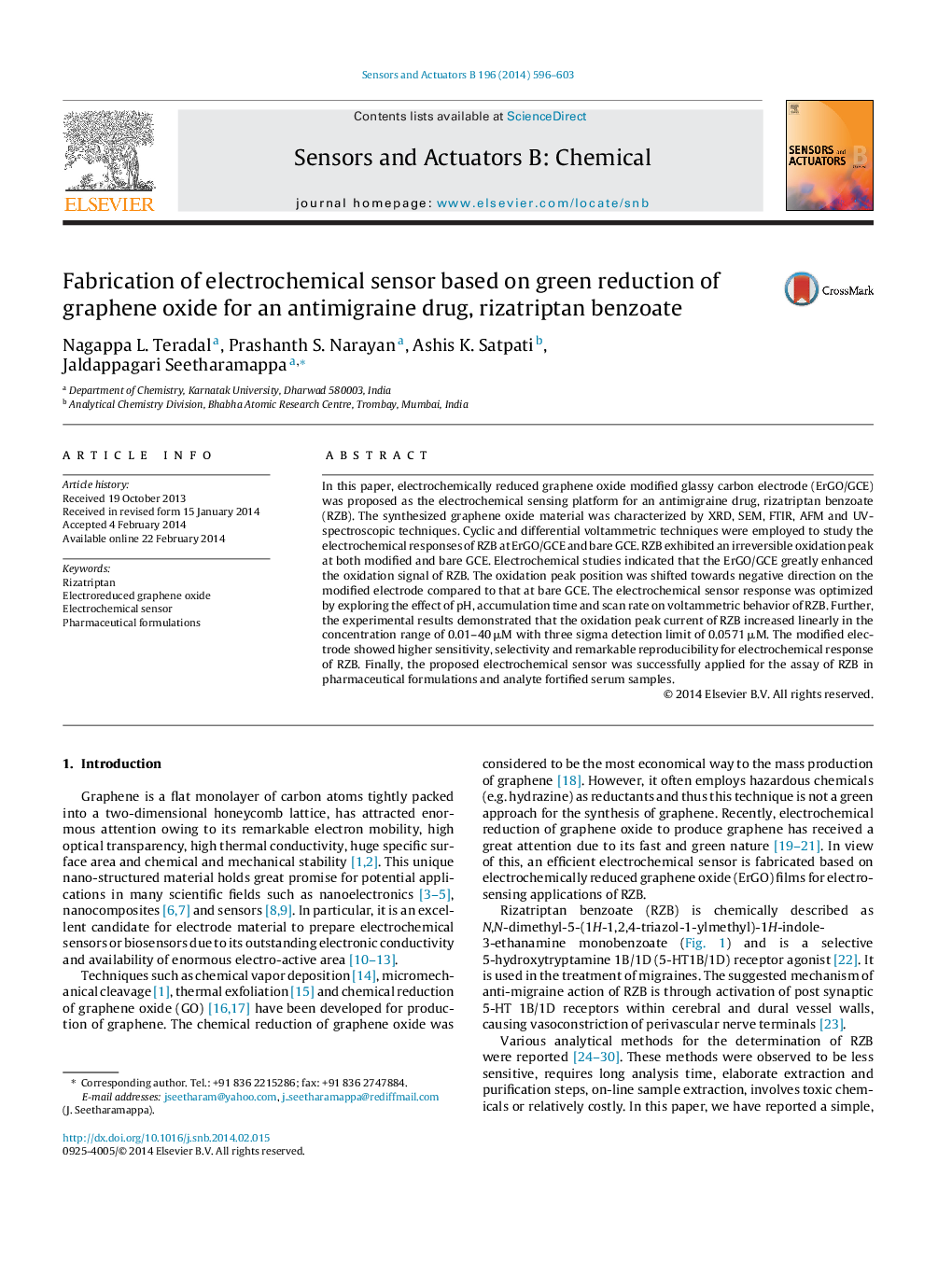| Article ID | Journal | Published Year | Pages | File Type |
|---|---|---|---|---|
| 750946 | Sensors and Actuators B: Chemical | 2014 | 8 Pages |
•Graphene oxide was synthesized and characterized using analytical techniques viz., UV–visible, FTIR, XRD, SEM and AFM.•An efficient and eco-friendly electrochemical method was used for the reduction of GO.•Selective and sensitive electrochemical sensor was proposed based on electrochemical reduction of GO for rizatriptan.•Proposed sensor was utilized for the assay of rizatriptan in tablets and analyte fortified serum samples.
In this paper, electrochemically reduced graphene oxide modified glassy carbon electrode (ErGO/GCE) was proposed as the electrochemical sensing platform for an antimigraine drug, rizatriptan benzoate (RZB). The synthesized graphene oxide material was characterized by XRD, SEM, FTIR, AFM and UV-spectroscopic techniques. Cyclic and differential voltammetric techniques were employed to study the electrochemical responses of RZB at ErGO/GCE and bare GCE. RZB exhibited an irreversible oxidation peak at both modified and bare GCE. Electrochemical studies indicated that the ErGO/GCE greatly enhanced the oxidation signal of RZB. The oxidation peak position was shifted towards negative direction on the modified electrode compared to that at bare GCE. The electrochemical sensor response was optimized by exploring the effect of pH, accumulation time and scan rate on voltammetric behavior of RZB. Further, the experimental results demonstrated that the oxidation peak current of RZB increased linearly in the concentration range of 0.01–40 μM with three sigma detection limit of 0.0571 μM. The modified electrode showed higher sensitivity, selectivity and remarkable reproducibility for electrochemical response of RZB. Finally, the proposed electrochemical sensor was successfully applied for the assay of RZB in pharmaceutical formulations and analyte fortified serum samples.
